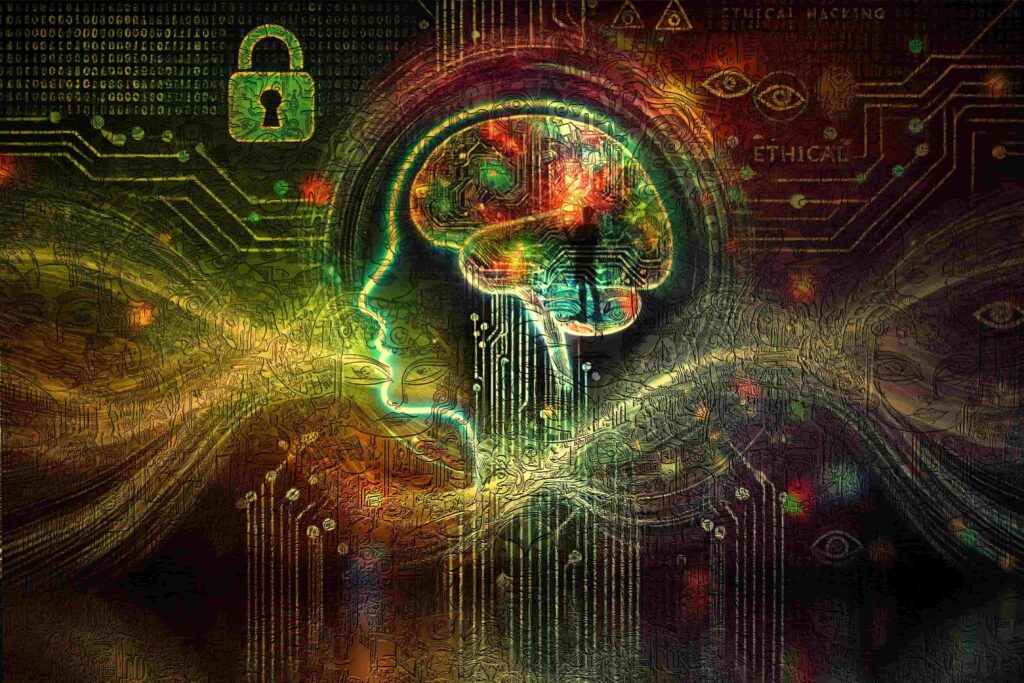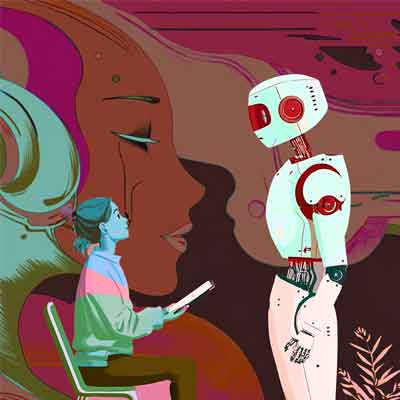Ethical Hacking AI: Humanity’s Path to Mastery
Sep. 10, 2024. 5 mins. read.
5 Interactions
As AI evolves, ethical hacking becomes essential to safeguard humanity. Explore how ethical hackers are shaping a future where AI serves the collective good, beyond just innovation.
Humans possess a profound curiosity that drives not only the construction of new systems but also their deconstruction. This same curiosity compels us to dismantle wholes into parts, analyze each component, and then reassemble them into something innovative—a process that is fundamentally characteristic of hacking.
Whether motivated by discovery, creativity, or improvement, this practice of deconstruction and reconstruction is akin to what ethical hackers do. They break down the mold to understand how it works, then use that understanding to build something better or more secure.
Ethical hackers, in contrast to their malicious counterparts, operate under a moral compass. They lean towards the positive and constructive aspects of hacking, serving as activists for the greater good. Their objective is to identify vulnerabilities and weaknesses in systems to protect them from exploitation. Professionally, hackers are individuals who can understand complex systems, figure things out, and make something remarkable happen. This definition often blurs the line between ethical hacking and other forms of hacking, but it is clear that ethical hackers adhere to a code of conduct that protects both them and their clients. As Artificial Intelligence (AI) becomes deeply integrated into various aspects of human life, ethical hacking emerges as a critical practice. Ethical hacking in the AI realm involves reverse engineering algorithms, understanding decision-making processes, and identifying potential vulnerabilities (Yaacoub et al., 2021). The practice ensures transparency, fairness, and accountability, which are essential for preventing biases, misuse, and harmful behaviors (Baroccas and Selbst, 2016). In ethical hacking, hackers adopt a strict code of conduct, similar to the ethical standards held by medical professionals, to build trust and maintain the integrity of their work (Saha et al., 2021). The black box nature of many AI systems poses significant challenges, as even the creators may not fully understand how these systems make decisions. Ethical hackers can help open this black box, providing much-needed clarity and understanding (Barolli et al., 2019). By dissecting AI code, ethical hackers aim to ensure that these systems do not perpetuate harmful biases or act in ways that could harm individuals or society.
Digital Viruses and the Risks of BCIs
In our interconnected digital world, the threat of digital viruses is a growing concern, particularly with the rise of Brain-Computer Interfaces (BCIs). Digital viruses, much like biological viruses, need a host to survive. In the context of BCIs, they could embed themselves within Dynamic Link Libraries (DLLs) or other critical system components, exploiting them to gain unauthorized access or control. Such a destructive virus could have catastrophic consequences, from corrupting software to erasing essential data or compromising the integrity of the systems. Moreover, in the context of BCIs, these viruses could manipulate perceptions or behaviors, posing significant ethical and security challenges (Barolli et al., 2019). The potential for digital viruses to alter both digital and biological processes is a new frontier in cybersecurity, requiring innovative approaches to protect both users and their data. As BCIs become more sophisticated, the line between digital and biological systems blurs. This convergence presents unique challenges that require new ethical frameworks. A virus within a digital BCI could not only disrupt software but potentially alter biological genetic codes. This reality raises fundamental questions about how to protect not just data but the biological integrity of individuals interfacing with AI through BCIs.
The development of BCIs and the practice of ethical hacking raise profound ethical questions: How can we ensure that the power of BCIs is used responsibly? Developing robust ethical guidelines and standards is crucial to protect individual autonomy and security. What measures can we implement to protect against digital viruses that could manipulate thought and behavior? These measures require a comprehensive cybersecurity approach that anticipates and counters the unique threats posed by digital-biological integration. How do we balance the potential cognitive and communication enhancements of BCIs with the risks of privacy invasion and autonomy loss? Striking this balance is critical to fostering trust in these technologies and ensuring they benefit society without infringing on individual rights.

Reflect: How can the LKM Collective and ASI ensure that AI systems evolve in ways that serve the collective good rather than individual interests? In what ways can Ethical Hacking AI amplify AI’s potential to foster global peace, understanding, and unity? How do we protect future generations by embedding long-term ethical considerations into AI today?
The act of ethically hacking AI is not just about controlling technology; it’s about guiding it to mirror our highest values and aspirations. Ultimately, the goal of ethical hacking in AI is to ensure that AGI serves humanity rather than the other way around. This involves designing AI systems that are not only intelligent but also aligned with human values. Ethical hackers can play a crucial role in this process by continuously testing, auditing, and refining AI systems to ensure they do not deviate from their intended purposes. In this new paradigm, humanity must maintain its role as the most intelligent species, not through dominance but through wisdom and ethical stewardship. By engaging in ethical hacking, we ensure that AI becomes a tool and a partner for collective transformation, guiding us toward a more evolved, enlightened species capable of overcoming our baser instincts and achieving our fullest potential.
Kosmic Code: Ethical Mastery
AI Security + Ethical Hacking = Ethical Mastery
References
- Baroccas, S., & Selbst, A. D. (2016). Big Data’s Disparate Impact. California Law Review, 104(3), 671-732.
- Barolli, L., Takizawa, M., Xhafa, F., & Enokido, T. (2019). Research and Practice of AI Ethics: A Case Study Approach. Science and Engineering Ethics.
- Saha, S., Das, A., & Kumar, A. (2021). Ethical Hacking: Redefining Security in Information System. Springer.
- Yaacoub, J.-P. A., Noura, H. N., Salman, O., & Chehab, A. (2021). A Survey on Ethical Hacking: Issues and Challenges. arXiv preprint arXiv:2103.15072.
Let us know your thoughts! Sign up for a Mindplex account now, join our Telegram, or follow us on Twitter.


.png)

.png)


.png)








2 Comments
2 thoughts on “Ethical Hacking AI: Humanity’s Path to Mastery”
Ethical hackers protect complex AI and BCI systems by ensuring transparency, security, and alignment with human values. Their work helps safeguard autonomy and prevent potential abuses in the digital-biological space.
🟨 😴 😡 ❌ 🤮 💩
Thank you Sharon.
? Ethical Hacking and AI: Safeguarding Humanity’s Future ??
https://www.linkedin.com/feed/update/urn:li:activity:7239832138659807235/
🟨 😴 😡 ❌ 🤮 💩